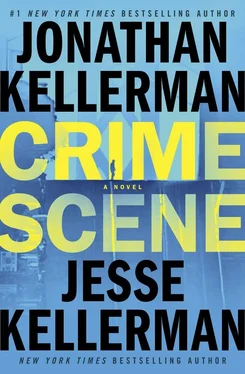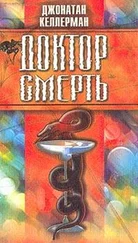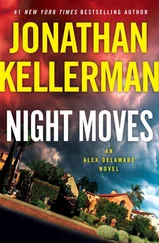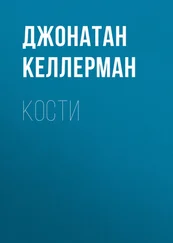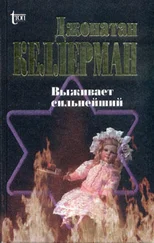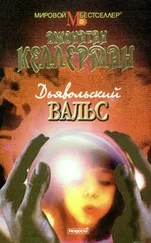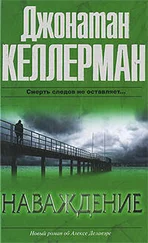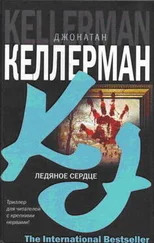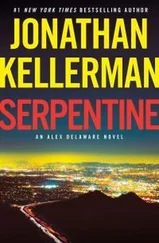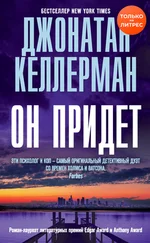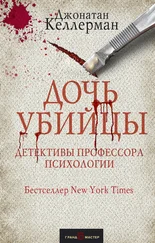“We examine the physical environment and the body,” I said. “The slightest question, we’ll err on the side of caution and bring him in.”
“Do you do the autopsy?”
“No ma’am. The pathologist, a medical doctor. I work for the Sheriff.”
“Mm,” she said. I couldn’t tell if she was relieved or disappointed.
Windless sun beat down. Small animals chittered in the cedar branches.
“He didn’t slip,” she said. “He was pushed.”
She shifted, just perceptibly, to address Hocking. “That’s what I’m trying to tell you.”
Credit Officer Hocking for a good poker face.
“I’m definitely going to want to talk to you about that,” I said. “Right now, I’m going to ask if we can pause for a bit, and me and my partner can go inside and conduct our assessment?”
I was careful not to use the word investigation. More accurate, in a way, but I didn’t want to suggest that I’d opened the door to the possibility of a homicide. I hadn’t opened any doors, period.
Tatiana Rennert-Delavigne hugged herself tighter and kept silent.
I said, “I promise that we will treat your father with the utmost respect.”
“I’ll wait here,” she said.
Approaching the house, I noticed deferred maintenance. Rain gutters sagged. Cracks in the façade had begun to gape. The portico floor was missing bricks. The front door was solid oak, though, coffered and free of damage, flanked by two unplanted planters smeared with lichen. All the windows I could see were unbroken.
I signed in, tucked my Posse Box under my arm, pulled on gloves.
Inside, Zaragoza was busy with the camera. A couple of Berkeley cops hung around in the doorway, spectating.
The foyer was a double-high oval, open at the long ends to a dining room and a den. Expansive but spare: the furniture consisted of a single high-backed chair and a console table with a tray, over which an oxidized mirror hung askew. At the back, a staircase curved up toward a spidery iron chandelier.
No rug to cushion the impact of flesh on tile.
No sign of disturbance, just the body, facedown.
I could imagine Tatiana’s shock.
I smelled coffee.
Walter Rennert was dressed in a navy-blue bathrobe, fraying at the hem. His feet were bare. Medium height. High side of average, weight-wise. His left arm was curled beneath his torso. His right elbow crooked skyward, as though he’d tried to slow his descent. I’d seen plenty of other bodies similarly positioned, which made it hard not to jump to an immediate conclusion.
Ten feet separated him from the bottom step. That’s a long way for a grown man to travel. I doubted he’d been pushed from the top of the stairs. It would take a violent and powerful heave, close to ground level.
Or else he tripped on the last few steps, went sprawling, cracked his head.
Or else he’d been moved.
Or someone from our side had moved him.
I turned to the uniforms in the doorway. “Anyone move him?”
One of them fetched Schickman.
“Not us,” he said.
“Fire?”
“Not as far as I know. He was cold to the touch when they got here, so I think they pretty much let him be. I can ask.”
“Thanks. Do me a favor and ask the decedent’s daughter also.”
He nodded and went off.
The source of the coffee smell was a brown puddle to my left. The cup it had come from lay on its side, lid popped off. A crumpled bakery bag coughed out its contents. Bran muffin. Scone. Two croissants.
Weekly brunch.
I pictured Tatiana getting out of her Prius, purse slaloming down her shoulder, coffee in one hand, pastry bag in the other, trying to manipulate a house key with two fingers.
I pictured her walking in.
Seeing him.
Dropping the food.
I didn’t see her screaming or freaking out. More like she’d dropped the food because it was the fastest way to get to her purse and her phone.
Assumptions.
I began my circuit at the console table. In the tray were a set of keys and a black leather wallet. The keys included one for an Audi and another for a Honda. I hadn’t seen either car. No big mystery: the garage wasn’t attached to the house, but down at street level, chopped into the bedrock, a common setup for East Bay hilltop homes.
Rennert’s wallet contained an unremarkable assortment of credit cards and forty-six dollars in cash. He belonged to two libraries, Cal and Berkeley Public. Health insurance. Social Security. AAA. Fuzz-edged loyalty card for Peet’s.
I checked the California driver’s license against the man on the ground. Even with next of kin present, I like to find at least one form of photo ID. Stuff like that seems redundant until it’s not.
I knelt down for a better look.
The dead man had a dense gray beard and a scraggly gray-white hairline that had fought to hold its ground. His eyelids were locked tight in an expression of agony, his mouth half open. He looked as though he had just received terrible news, unbelievable news.
He was indeed identical with Walter Jerome Rennert.
In the license photo he wore a dazed smile.
I replaced it in the wallet.
Zaragoza took a few last flicks of the body and turned his attention to the staircase, ascending one step at a time, pausing between shots to wiggle the treads. The walls were whitewashed plaster. Blood would stand out. The stairs themselves were uncarpeted — a point in favor of a slip. Rushing down, say, to answer the door.
I stepped to the far side of the body. Rennert’s right hand was tucked against his flank, gripping an object, the fingers fixed like pipe straps. I waved to Zaragoza, double-checking that he’d gotten shots in situ. He gave me a thumbs-up and I coaxed the object out: an etched-glass tumbler. Its robust, opaque base tapered to wafer thinness along the walls. The faintest coin of yellow liquid pooled at the bottom. Aside from a minuscule chip in the rim, it was intact, which argued strongly against a fall of any significant distance, whether that fall had come about as the result of carelessness, intoxication, bad luck, or malice.
On the other hand, a person hit with, say, an acute myocardial infarction might have time to realize what was happening. He might struggle to stay upright, succumbing in stages, brought first to his knees, then to palms and knees, elbows and knees, before finally giving out. Clutching the tumbler all the while. Wanting to avoid dropping it or collapsing on top of it. Refusing to accept that this was the end. Thinking a very pragmatic, very defiant, very human thought: No reason to ruin a perfectly good piece of crystal.
I bagged and tagged the tumbler.
Schickman reappeared in the doorway. “She says she tried to turn him over to do CPR but couldn’t.”
“Couldn’t turn him, or couldn’t do CPR?”
“You want me check with her again?”
I shook my head. “I’ll handle it. Thanks.”
The body most often speaks for itself.
I set the tumbler aside and knelt at the top of Rennert’s head, pressing my fingers into his skull and neck; moving down the spine and the back of the rib cage; digging through the robe’s deep pile, through layers of skin and fat and flesh gone rigid; verifying the integrity of the bones beneath.
No indication of fracture or dislocation.
There’s a reason we do autopsies, though: some bodies keep secrets.
Having reached the top of the staircase, Zaragoza came down wordlessly to assist me.
He took hold of Rennert’s hips. I took hold under the arms. We did a silent three-count and rolled the body over.
The parts of Rennert’s face that had been in contact with the ground were blanched paper white, in contrast to the pronounced lividity in his nose and chin. I didn’t observe any marks consistent with blunt impact. His robe pouched open, revealing tufts of gray hair, breast and belly blotched purple and white. No lacerations, abrasions, or gross trauma.
Читать дальше
